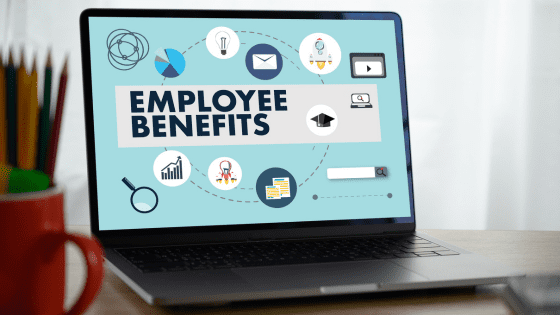The importance of staff development and retention can’t be overstated. A business’s success is directly linked to the skills, knowledge, and dedication of its people. In this article, we’ll explore effective strategies for nurturing talent within companies and fostering a culture of growth and retention.
1. Building a Culture of Learning and Growth
Creating a supportive learning environment and an effective learning and development strategy are essential for staff development. This includes providing access to resources, regular training and development programmes, and ensuring strong teamwork and mentorship opportunities. When employees feel supported in their learning journey, they are more likely to invest in their professional growth.
Opportunities for skill development and career advancement are critical to hiring and retaining top talent. Offering workshops, seminars, and online courses can help staff acquire new skills and stay relevant in their roles. Additionally, developing clear pathways for career progression shows employees that their growth is valued and incentivised within the organisation.
Investing in continuous learning initiatives demonstrates a commitment to employee development. Whether through training, mentoring or online learning platforms, businesses prioritising learning create a culture of innovation and adaptability.
2. Tailoring Development to Individual Needs
Regular performance assessments allow managers to gain valuable insights into employees’ strengths, weaknesses, and areas for improvement. By creating a comprehensive employee performance management strategy and conducting regular reviews, managers can identify opportunities for development and tailor their approach to meet individual requirements.
Understanding employees’ career aspirations is important for high-quality and personalised development plans. By having open and honest conversations about their goals, managers can better support employees in their professional growth journey. This is also important for ensuring staff feel valued.
Developing personalised development plans ensures that your people grow their knowledge and become equipped with the skills and resources they need to succeed. These plans should be dynamic and adaptable, reflecting changes in both the employee’s goals and the organisation’s needs.
3. Offering Competitive Compensation and Benefits
Competitive salary and benefits packages are crucial for attracting and retaining top talent. Employees who feel that they are fairly compensated for their contributions are more likely to stay with the company long-term.
Offering additional perks and incentives can further enhance employee satisfaction and loyalty. Whether it’s flexible work hours, wellness programmes, or team-building activities, these perks can make a significant difference in employee morale and engagement.
Consider seeking feedback on your current compensation and benefits and adapting them to give people what they need most. This will also aid employee retention.
Implementing retention bonuses and reward programmes can help incentivise high-performing employees to stay with the company. By recognising and rewarding their contributions, businesses can show employees that their hard work is valued and appreciated.

4. Fostering a Positive Work Environment
Promoting work-life balance and flexibility is essential for employee well-being and retention. Companies that prioritise work-life balance create an environment where employees feel supported in both their professional and personal lives.
Encouraging open communication and feedback fosters a culture of transparency and trust. Employees who feel their voices are heard are more likely to be engaged and committed to the organisation.
Recognising and rewarding employee contributions is essential for morale and retention. Whether through formal recognition programmes or simple gestures of appreciation, acknowledging employees’ efforts goes a long way in building loyalty and commitment.
5. Mentorship and Coaching Opportunities
Pairing employees with experienced mentors can accelerate their growth and development. Mentors guide and support based on their own experiences, helping individuals navigate challenges and achieve their goals.
Offering coaching and professional development programmes provides employees with the tools and resources they need to succeed. Whether through one-on-one coaching sessions or group workshops, investing in employee development pays dividends in the long run.
The ultimate goal of staff development initiatives is to empower employees to reach their full potential. By providing mentorship, coaching, and ongoing support, companies can unlock their employees’ full potential and position them for success.
Investing in talent development and retention is essential for motivating employees, employee retention, and organisational success. This can be achieved by building a culture of learning and growth, tailoring development plans to individual needs, offering competitive compensation and benefits, fostering a positive work environment, and providing mentorship and coaching opportunities.
At Delphinium, we strongly encourage leaders to prioritise career development efforts as a cornerstone of their growth strategy. Contact us to explore our tailored training solutions for further staff development.
Author: Gemma Rolstone | Published 19th July 2024.




